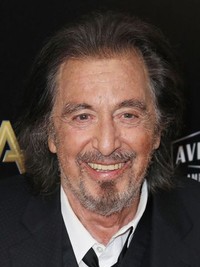Al Pacino

Arguably the most accomplished actor of his generation, Al Pacino became a cultural icon thanks to revered performances in a wide range of classic films, including "The Godfather" (1972), "Scarface" (1983) and "Glengarry Glen Ross" (1992). Coming to prominence during the New Hollywood golden age of the early 1970s, he possessed none of the classic features of leading men from Tinseltown's previous heydays, but enthralled audiences with absorbing performances on screens both large and small. As a Method actor, Pacino revealed the dark complexities of characters like Frank Serpico, Sonny Wortzik and Colonel Frank Slade. But in life, the actor remained an elusive figure, preferring to avoid disclosing anything of a personal nature. Despite such reluctance to open up about his life, Pacino maintained a long, prominent career in which he accomplished acting's rarest of feats - winning Oscar, Emmy and Tony awards. Although critics of his later films sometimes complained that Pacino coasted on accumulated goodwill from his powerful early work, performances ranging from his Shylock in Michael Radford's "The Merchant of Venice" (2004) to controversial assisted-suicide advocate Dr. Jack Kevorkian in Barry Levinson's "You Don't Know Jack" (HBO 2010) and troubled record producer Phil Spector in David Mamet's "Phil Spector" (HBO 2013) revealed an actor able to slip in and out of wildly different characters.